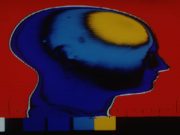Tag: Bipolar Affective Disorder
Schizophrenia, Bipolar I Patients Experience Cognitive Decline
Differences seen in patterns, timing of decline in cognitive function according to psychotic disorder
Survey Highlights Difficulties of Living With Bipolar Disorder
Struggles include finding the right medication and medication side effects
Genetic Risk for Psychiatric Disorders Linked to Brain Changes
Polygenic risk scores for bipolar disorder and schizophrenia linked to structure and function of the ventromedial prefrontal cortex
Key Factors ID’d for Bipolar Medication Nonadherence
Patients report side effects, beliefs, and knowledge about bipolar disorder are top reasons for not taking medications
Severe Mental Illness Tied to Higher Risk for Heart Attack Death
Those with severe mental illness also less likely to receive revascularization
Pharmacotherapy, Psychotherapy Combo Best for Bipolar Disorder
Manualized treatments linked to significantly reduced recurrence rates versus control treatments
Machine Learning Algorithm May Help Predict Bipolar Disorder
Algorithm applied at a patient visit at age 18 years identifies those at risk for bipolar disorder at age 22
ECT May Reduce Suicide Risk in Patients With Bipolar Depression
Authors of cohort study report 84.4 percent decrease in suicidality after electroconvulsive therapy
High-Deductible Health Plans Affect Care in Bipolar Disorder
Drop in nonpsychiatrist mental health provider visits, but not psychiatrist visits, seen after switch to HDHP
Familial Psychiatric History Common in Bipolar Disorder
Patients with versus without familial history tend to need more treatment but have similar response














